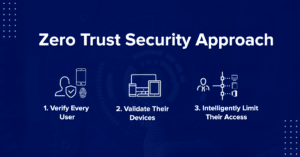Ransomware is a type of malware that encrypts a victim’s files and demands a ransom payment in order to decrypt them. Ransomware attacks have become increasingly common in recent years, and they are now one of the most common types of cyberattacks.
The future of ransomware is uncertain, but it is likely that attacks will continue to grow in both frequency and severity. Ransomware actors are constantly evolving their tactics, and they are becoming more and more sophisticated. It is important for businesses to stay up-to-date on the latest ransomware threats and to implement security measures to protect themselves from attack.
Here are some of the trends that are likely to shape the future of ransomware:
- The rise of the dark web: The dark web is a hidden part of the internet that is used for criminal activity. Ransomware actors often use the dark web to communicate with each other and to carry out attacks. The dark web is likely to continue to grow in popularity, which will make it easier for ransomware actors to operate.
- The increasing sophistication of ransomware: Ransomware actors are constantly evolving their tactics, and they are becoming more and more sophisticated. This makes it more difficult for businesses to defend themselves against attack.
- The growing popularity of cloud computing: Cloud computing is a way of storing data and applications on remote servers. This makes it easier for businesses to access their data from anywhere, but it also makes them more vulnerable to ransomware attacks. Ransomware actors often target cloud-based businesses, as they can encrypt a large amount of data in a short period of time.
The future of ransomware is uncertain, but it is clear that the threat is growing. Businesses need to take steps to protect themselves from ransomware attacks, and they need to be prepared to respond if they are attacked.
Here are some tips for businesses to protect themselves from ransomware:
- Implement strong cybersecurity measures: This includes using strong passwords, installing antivirus software, and keeping software up to date.
- Back up your data: If you are attacked by ransomware, you will need to restore your data from a backup. Make sure you have a backup plan in place and that you test your backups regularly.
- Be aware of the latest ransomware threats: Keep up-to-date on the latest ransomware threats and how they are being carried out. This will help you to identify and avoid attacks.
- Have a plan in place for responding to ransomware attacks: If you are attacked by ransomware, you will need to respond quickly and effectively. Make sure you have a plan in place for how you will respond to an attack.
Ransomware is a serious threat, but it is one that can be mitigated with the right security measures. Businesses need to take steps to protect themselves from ransomware attacks, and they need to be prepared to respond if they are attacked.


